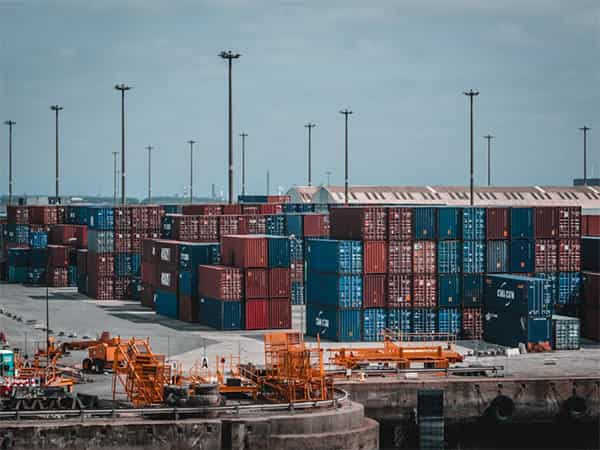India’s restrictions on imports from Bangladesh via land ports will impact goods worth USD 770 million, accounting for nearly 42 per cent of total bilateral imports, according to the Global Trade Research Initiative (GTRI) report, a trade-focused research Group.
Union Ministry of Commerce and Industry on Saturday imposed immediate port restrictions on the import of several categories of goods from Bangladesh, following a directive issued by the Directorate General of Foreign Trade (DGFT).
After this decision, key goods like garments, processed foods, and plastic items are now limited to select sea ports or barred from land routes entirely.
Under the new policy, Bangladeshi garments, which are valued at USD 618 million annually, can now enter India only through two designated seaports, effectively barring access via land routes that previously served as primary trade arteries.
The decision will severely impact Bangladesh’s most lucrative export channel to India, the GTRI added.
Indian textile manufacturers have long voiced concern over what they describe as unfair advantages enjoyed by Bangladeshi competitors, who benefit from duty-free imports of Chinese fabric and substantial government export subsidies. These factors reportedly give Bangladeshi exporters a 10-15 per cent pricing edge in the Indian market.
The GTRI added in its report that these trade measures did not emerge in isolation.
“The restrictions look like India’s response to Dhaka restricting imports from India on a large number of items and diplomatic pivot towards China,” the GTRI report added.
The move is also possibly being seen as a response to controversial remarks by Bangladesh’s interim chief advisor, Muhammad Yunus.
During a speech in China, Bangladesh’s Chief Adviser Yunus had described India’s northeastern states as a “landlocked region with no access to the ocean”. This comment has sparked diplomatic friction, with Indian officials viewing it as undermining the region’s connectivity and status.
Highlighting Dhaka’s increasing proximity with China, the report adds that the fall of Sheikh Hasina’s pro-India government in mid-2024 and the rise of an interim administration under Muhammad Yunus have brought a willingness to align with Beijing. Yunus’s visit to China in March 2025 yielded USD 2.1 billion in new investments and cooperation agreements. All these developments, along with infrastructure projects like the Teesta River development, have posed a significant threat to India’s position in the region.
Since late 2024, Bangladesh has imposed a series of restrictions on Indian exports. These include an April 2025 ban on Indian yarn imports through five major land ports, tighter curbs on rice shipments, and import bans on dozens of Indian goods–from paper and tobacco to fish and powdered milk. Adding to the friction, Dhaka introduced a transit fee of 1.8 taka per tonne per kilometre on Indian goods moving through its territory.
The report added that these cumulative actions, along with operational delays and tightened port inspections, have hampered Indian exporters and triggered calls for a calibrated response.
Anurag Dhole is a seasoned journalist and content writer with a passion for delivering timely, accurate, and engaging stories. With over 8 years of experience in digital media, she covers a wide range of topics—from breaking news and politics to business insights and cultural trends. Jane's writing style blends clarity with depth, aiming to inform and inspire readers in a fast-paced media landscape. When she’s not chasing stories, she’s likely reading investigative features or exploring local cafés for her next writing spot.






